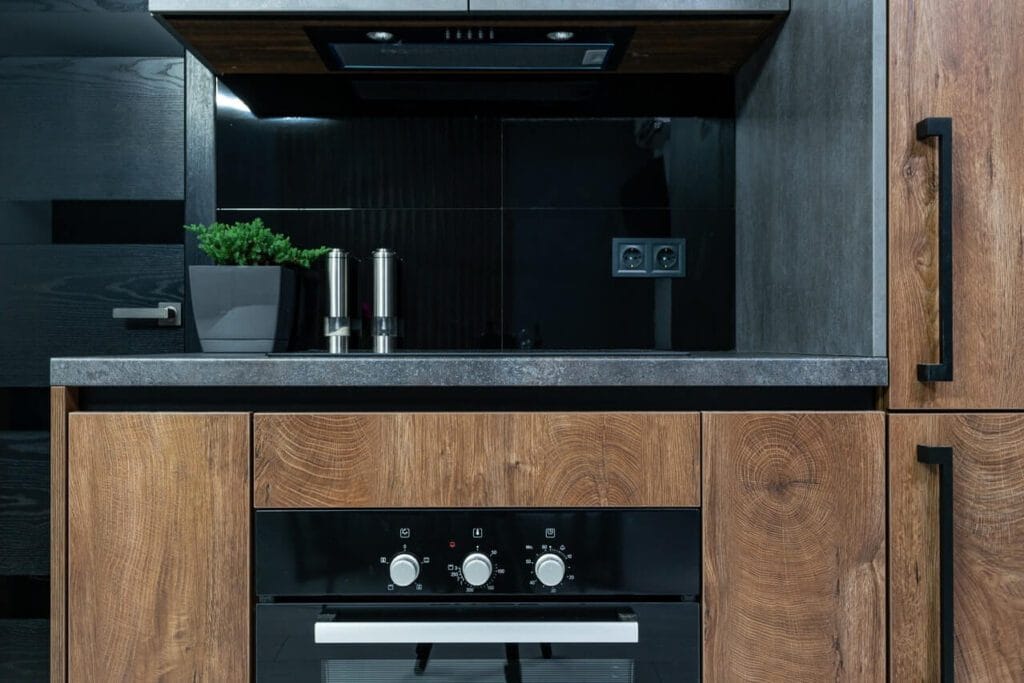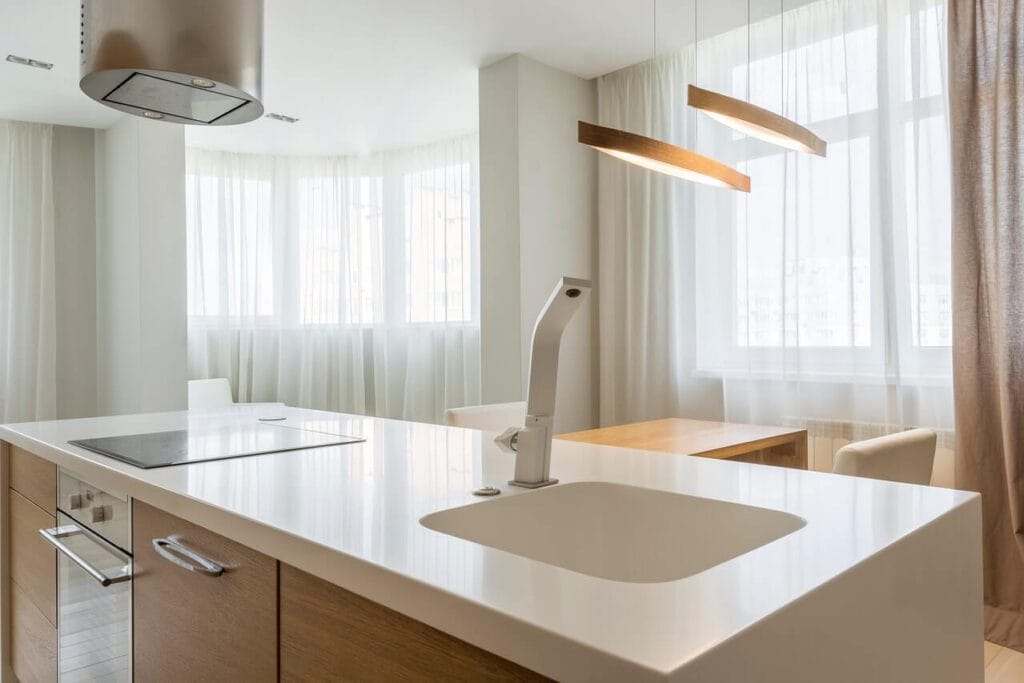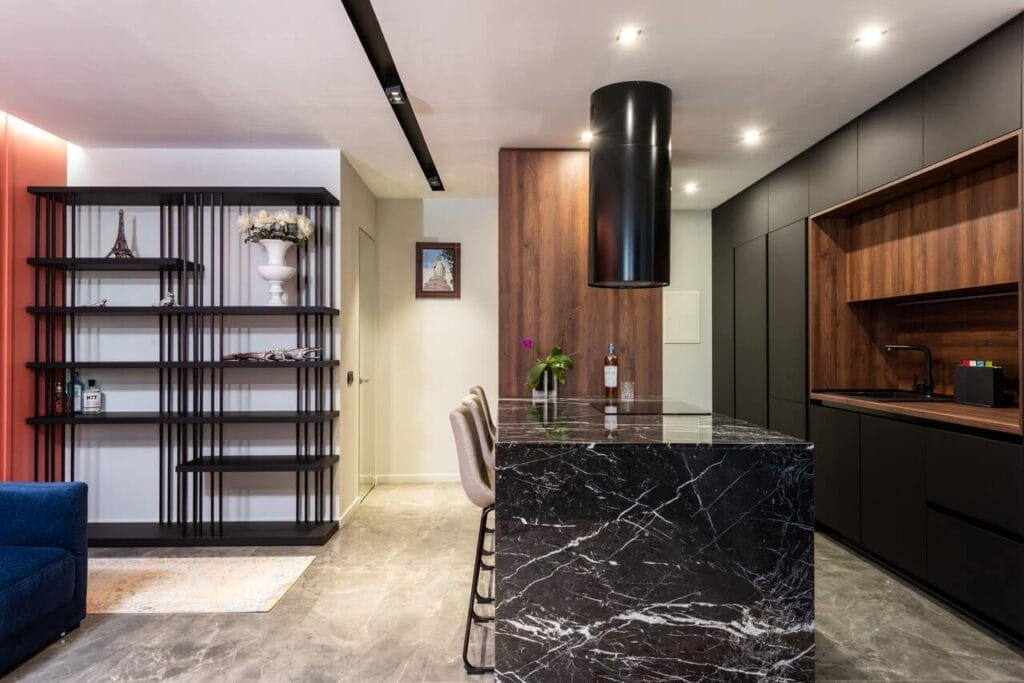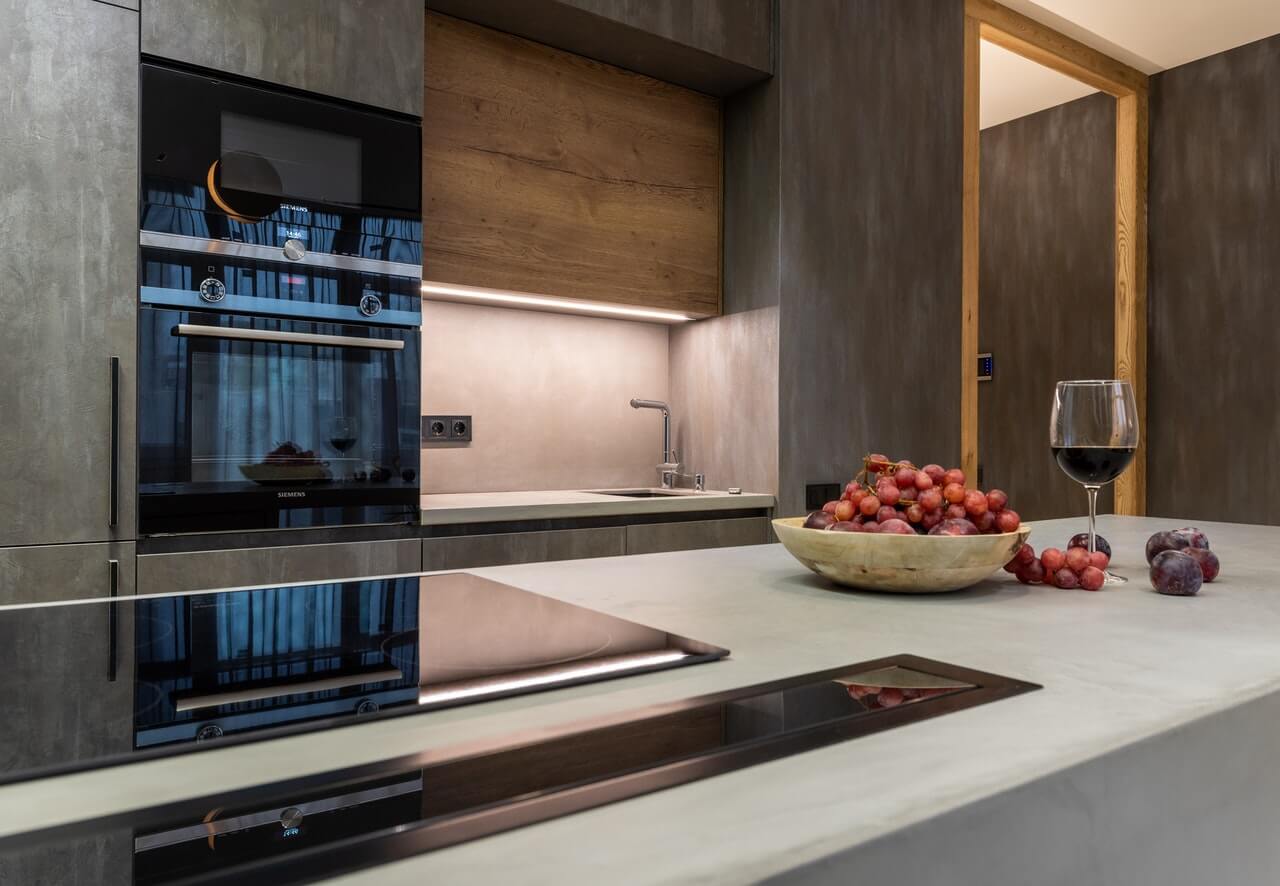When it comes to choosing a countertop material for a bathroom or kitchen, the options are often limited to two options: quartz and granite (designed stone and natural stone respectively). This is a difficult choice to make since the difference between the two materials is not readily visible. For one thing, both quartz and granite are noisily marketed by their respective makers as being completely natural, extracted directly from the earth’s surface, and hard as stone.
Let us take a look at these two countertop varieties and their various similarities and differences.
What is quartz?
Quartz is a synthetic stone formed from roughly 93% quartz and 7% artificial resins, polymers, colors, and other microscopic particles. Sometimes additions like metal and glass are added to make up the 7% if they give the quartz a specific aesthetic.
Because quartz is a manufactured stone, it’s simple for stone fabricators to produce numerous different patterns, hues, and styles of quartz depending on what you’re looking for.
If you want an all-white basic kitchen, you could simply cut a quartz countertop in that hue. In addition, if you desire a natural-looking stone-like countertop, quartz might be created in this manner too.
Because of the resin used in its manufacturing, quartz countertops are virtually totally non-porous, meaning they don’t allow any water, spills, or germs inside. This makes them very stain-resistant, however, you can frequently anticipate them to cost a bit more money than granite.

What is granite?
Granite is a natural stone found in quarries that exist naturally on the Earth. These slabs are excavated from quarries, transferred to a stone manufacturing factory, and then cut and polished to perfection. It’s a little like how diamonds are created, but on a far greater scale.
Because granite is a natural stone, it’s somewhat porous and consequently has to be “sealed” frequently. Granite sealing is a procedure wherein a specific liquid is put over the surface and allowed to sink in, thereby “plugging up” all the microscopic holes in the granite.
Because granite is a natural stone, it features distinct, random patterns and veins that cannot be replicated. The peculiar veins and patterns on a piece of granite are unique to that individual stone, and you’ll never obtain two granite countertops that are precisely the same.
Granite countertops are generally cheaper than quartz, yet really high-end granite might cost a lot of money.
How to Choose a Countertop.
When it comes to choosing the ideal surface for your countertop, it’s crucial to consider factors other than popularity and pricing. Countertops create an atmosphere for the whole kitchen, so pick materials and a design that not only represent your own taste but also correspond to how you want to utilize the kitchen.
Granite has long been the material of choice in the world of kitchen design. Despite the fact that it is said to increase the resale value of your home, the price tag is too expensive for many people.
Because of this, it is possible to achieve the look of granite for less money—whether through elaborate textured laminate patterns, engineered stone surfaces such as quartz, or solid surfaces that can be fashioned to your requirements to include features such as an inclusive sink or backsplash.
Quartz vs. Granite
Below is a comprehensive comparison of quartz vs granite countertops. It will help you answer the question, “ is quartz countertop better than granite countertop?”
Composition
Granite is a fully natural earth stone that comes straight from quarries. It is then cut into smaller slabs, smoothened, and manufactured into countertops.
Quartz countertops are engineered stone materials that may include a substantial amount of real quartz but may also incorporate other minerals. They are not slabs of quarried stone but instead are created from by-products of stone that are crushed and shaped into smaller slabs for countertops.
Appearance
The one benefit that granite has over an engineered stone is that every granite slab is somewhat distinct in mineral pattern and color, ensuring that your countertop will be unique. Quartz countertops, being a constructed product, are more homogeneous in appearance, yet numerous hues and unusual patterns are available, including shapes that do not resemble granite at all.

The option here is a question of personal preference. If you genuinely want the appearance of natural stone, then buy the actual natural product—granite. But many individuals believe that quartz countertops give appearances that are distinct and better than genuine stone.
Cost
No doubt about it: Both granite and quartz are luxury, high-dollar countertop materials. If you are on a budget, these are not the countertop materials for you.
The price of granite countertops changes depending on the style selected as well as on the kind of edging treatments needed. As quartz has become widely known and more generally accessible, the prices of basic counters have plummeted, with distinctive designer designs and hues fetching upper-end pricing.
Pricing for both kinds of countertop vary since both are supplied elsewhere. All of these items are container-shipped across seas, and this is reliant on fuel costs. Tariffs and other considerations might also impact price.
DIY Suitability
These are not goods that lend themselves to do-it-yourself installation, save for modest bathroom vanity counters. Granite and quartz are fairly heavy materials, and even a relatively tiny 36-inch countertop weighs close to 100 pounds. It is important to have a specialist construct and fix your countertop. However, if you do want to do it yourself, both countertop types are installed using the same method.
Maintenance and Durability
There is a definite benefit here to quartz over granite, while both stones are quite durable. Granite is a somewhat porous stone that needs sealing after initial installation, then periodic sealing on a continuing basis. And granite slabs may have intrinsic faults that render them prone to fracture. Quartz, on the other hand, does not need sealing, due to the resins used in the production of the slabs; and the material is consistent throughout, which means it seldom breaks.
The polymers in quartz countertops make them substantially more resistant to discoloration than granite. By some accounts, quartz is also less vulnerable to harboring germs, again because of the resins that make the surface less porous.

Real Estate Value
These are both high-end construction materials that will impress potential purchasers. When compared to laminate or ceramic tile countertops, both granite and quartz may marginally boost the real estate value of your property. There may be some purchasers that offer a minor edge to granite because it is a more natural material.
Environmental Issues
Both countertop materials are largely formed of natural resources, but granite countertops come out significantly ahead as they are manufactured from 100 percent stone, while quartz, incorporates natural materials, color pigments, and polymer resins that link the ingredients together.
On the other hand, granite countertops need quarrying out of the ground, whereas quartz countertops are essentially manufactured from left-over stone leftovers, with no quarrying necessary.
Conclusion
Both granite and quartz are quality countertop materials that enhance the real estate value of a residence. Granite appeals to consumers who want all-natural materials, while quartz provides simpler maintenance and somewhat higher durability. By using this guide, you should be able to make a decision on whether quartz countertops are better than granite countertops.




